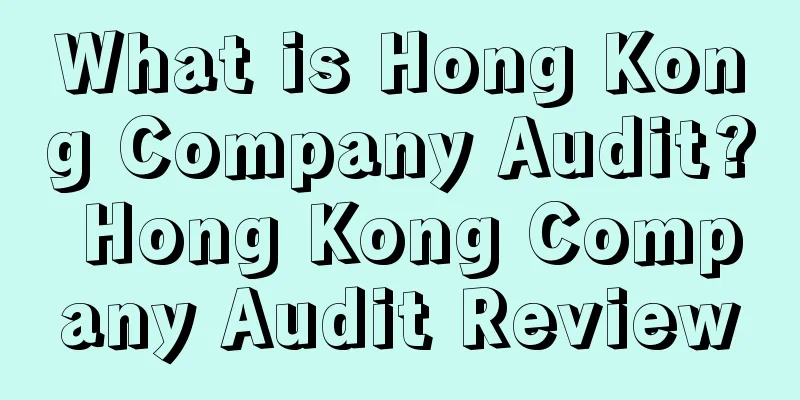|
Hong Kong company audit is also called Hong Kong company audit. Mainland enterprises generally call it audit, while Hong Kong accounting firms call it audit. Audit literally means to verify the numbers of the company's accounting accounts. Basic content
Hong Kong company audit means that a licensed accountant in Hong Kong verifies and approves the financial accounts of a company in Hong Kong for one year or more, and makes responsible explanations to the Hong Kong government departments in the form of relevant document reports.
Why do Hong Kong companies need audits?
There are many benefits of Hong Kong company audit. Hong Kong company audit can allow your company to demonstrate your strength and financial resources, enhance the company's image, etc. In fact, every Hong Kong company needs to be audited, that is to say, whether it is a large company or a small company, or even a shell company. The Hong Kong company audit report (also known as the Hong Kong company audit report) is not often used, but at critical times, it plays a decisive role in the development of the company.
Hong Kong company audit reports have many uses, the simplest of which are as follows:
1) It is a provision of the Hong Kong Companies Ordinance that every Hong Kong company needs to produce an auditor's report as required. The audit report is issued by an internationally recognized certified public accountant. The government will conduct inspections based on this report during the company's annual review and the company's declaration of bankruptcy. In addition, the annual audit report will be very helpful for the company's future dealings with the government.
2) Asset credibility: Make credible reports on assets and operations to the public and specific departments (such as banks) to explain the company's operations; issue audit reports that can be submitted to the company's shareholders to let the shareholders understand the company's operations.
3) It is the basis for corporate financing, fundraising and listing; it is a strong basis for domestic investment.
4) Any Hong Kong company that has been operating for one year and is profitable is required to provide an accountant’s audit report when canceling its registration.
Hong Kong company audit process:
Prepare documents:
1. Hong Kong company tax form;
2. Prepare Hong Kong company documents;
3. Arrange the documents (based on the bank statement, the current income and expenditure need to be checked against the general ledger);
4. Submit the accounting records to the Hong Kong auditor;
5. The auditor reviews and studies the accounts and issues an audit report on the Hong Kong company.
Hong Kong company tax filing tax types
Hong Kong's tax types and tax rates are among the lowest in the world with a stable and sound legal system. In Hong Kong's current tax legal system, compared with taxes in other countries and regions, Hong Kong's tax types are relatively few and most are direct taxes. Therefore, 60% of the world's large companies use it to make tax arrangements.
From the perspective of the objects of taxation levied by the Hong Kong government, they can be divided into four categories: property tax, behavior tax, income tax, consumption tax and customs duties.
property tax:
Property tax in Hong Kong is a tax levied by the Hong Kong government on certain specific properties in accordance with the law.
Behavioral taxes:
Taxation on certain specific behaviors is called behavior tax. Behavior tax is the most complex part of Hong Kong's tax system, involving all aspects of Hong Kong's social life. The main ones are: gambling tax, aircraft passenger departure tax, stamp duty, hotel room rental tax, entertainment tax, car first registration tax, in addition, there are also cross-harbor tunnel tax, patent and privilege tax, etc.
Income Tax:
Income tax in Hong Kong refers to the tax levied by the Hong Kong government on the net income of taxpayers' property in accordance with the law.
There are three types of income tax stipulated by Hong Kong law:
Property tax: If the company does not purchase property, it does not need to pay tax. If it purchases property, both the company and the individual need to pay 17.5% tax.
Salary tax: It has nothing to do with the company's operations and refers to the income of individuals or employees. The tax is 16%. There is a tax exemption for personal tax. Generally, only those who earn more than 100,000 need to pay a 16% tax.
Profit tax: Only profits are required to be paid. If the company's annual operating conditions and the audit report show a loss or zero profit, then after the tax bureau's assessment, no tax is required. The loss will be retained for tax deduction in the next year. Its assessment criteria are different from those in China. There is no business tax, because in China, if a company has income, it must pay business tax (turnover * 33%). Hong Kong companies only need to pay 16.5% of net profit.
example:
Revenue (cost of goods + other expenses) = profit x 16.5%
1 million (500,000 of goods cost + office expenses) = profit x 16.5%
If the company does not purchase any property in Hong Kong or employ any employees in Hong Kong, it only needs to pay profits tax.
Excise taxes and duties:
In Hong Kong, only a very small number of items are subject to consumption tax and customs duties, which are alcohol, hydrocarbon oil, methanol, and tobacco. For the import of alcohol, hydrocarbon oil, methanol, and tobacco, not only customs duties are imposed, but also certain consumption taxes are imposed on these specific items even if they are produced, operated, and sold in Hong Kong. |










